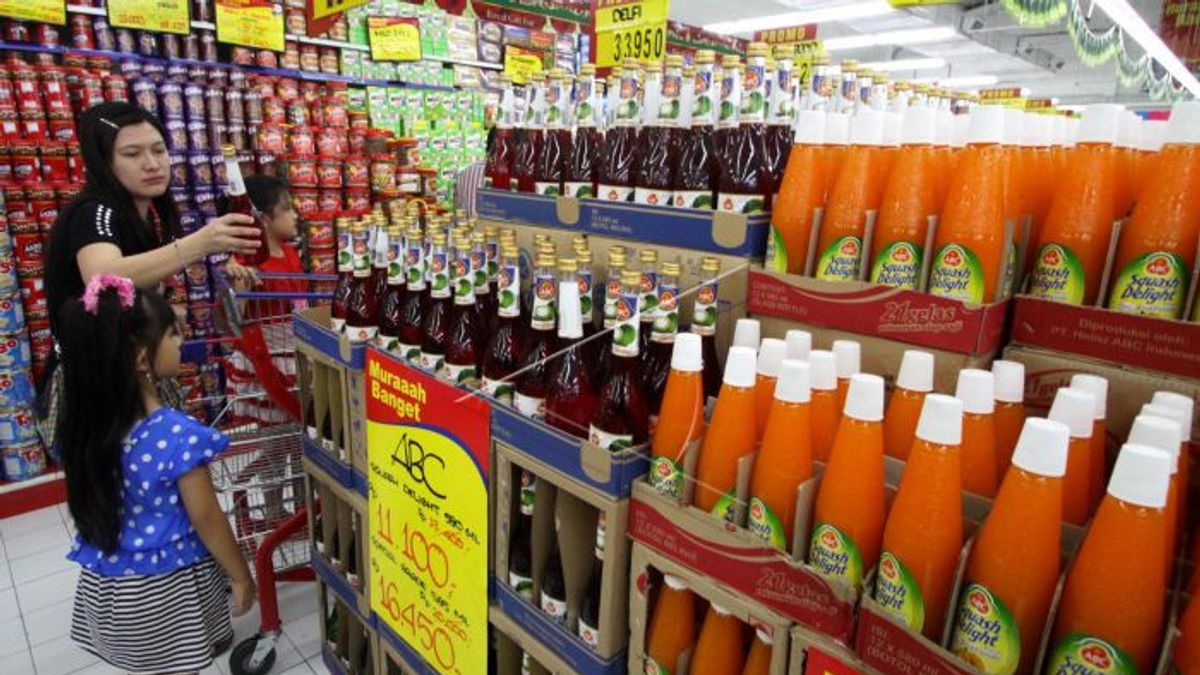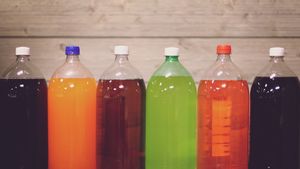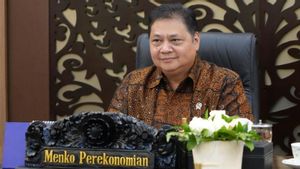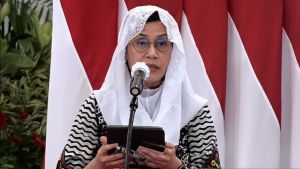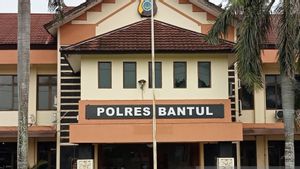JAKARTA - The Ministry of Industry (Kemenperin) views that this year's plan to apply packaged packaged sugar excise (MBDK) is not an effective effort to control non-communicable diseases and reduce the level of community obesity.
Director General of Agro Industry of the Ministry of Industry Putu Juli Ardika said, in terms of health, the contribution of calories and packaged drinks consumed by the Indonesian people was only 1.83 percent of the total calories compared to other food products.
"So, it is not appropriate to consider it a cause of diabetes and obesity," said Putu in the agenda of the Working Committee (Panja) Supervision of Processed & Ready-to-eat Food Products with Fat Sugar Content Commission IX DPR RI at the Parliament Complex, Jakarta, Monday, July 1.
Putu added that the consensus of experts also states that the causes of obesity and diabetes are multifactors. Including lifestyle, consumption patterns, physical activity levels and so on.
"So, it is very inappropriate to blame packaged drinks as a cause of diabetes and obesity," he said.
In addition, Putu said, there are a number of countries that have implemented the excise, but the level of obesity of the people is still increasing. The three countries are Mexico, England, and Australia.
It is known, the sugar tax was first worn for Mexicans in 2014. However, the proportion of people suffering from obesity has continued to increase since 2017.
Then, the British sugar tax was first worn in 2016. However, the peak level of people's obesity actually occurred in 2017. There are 30 percent of women and 27.4 percent of men in the UK are obese.
Furthermore, the consumption rate of MBDK in Australia has decreased for several years. However, the prevalence rate of obesity continues to increase.
"Like Mexico, if we look at the obessity rate, it is still increasing. Likewise, it is implemented in the UK and Australia," said Putu.
Previously, Minister of Finance (Menkeu) Sri Mulyani Indrawari said that the target for plastic excise duty and packaged sweetened drinks (MBDK) has been set.
However, the implementation of MBDK excise is more complex when compared to plastic excise because its implementation requires cross-ministerial discussion.
"We have conveyed the practice here. We only make a judgment on economic problems, if we are weak we add excise duty and also the urgency of this excise policy for consumption disclosure because it is dangerous for the environment and health. So, we see the timing of economic conditions and targets that have been set in the APBN," Sri Mulyani explained in a meeting with Commission XI DPR, Tuesday, March 19, 2024.
SEE ALSO:
According to Sri Mulyani, this is because sweetened drinks are included in the Health Law (UU). Thus, the discussion will be carried out jointly across ministries/agencies, both the Ministry of Health and the Ministry of Industry.
"Later there will be discussions between the Ministry of Health and the Ministry of Industry regarding sugar levels, salt levels that are considered healthy versus industry. This is why there have been various reactions because there have been discussions between k/l," he said.
Even so, Sri Mulyani emphasized that before implementing the MBDK excise, consultations would be carried out in advance, both in the k/l, cabinet and DPR RI.
The English, Chinese, Japanese, Arabic, and French versions are automatically generated by the AI. So there may still be inaccuracies in translating, please always see Indonesian as our main language. (system supported by DigitalSiber.id)
